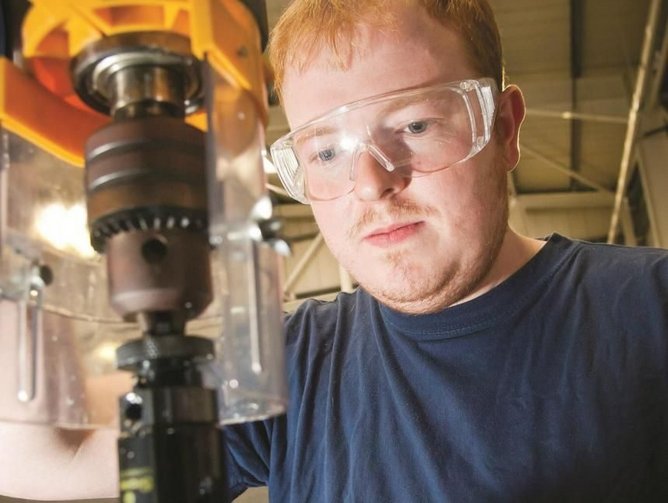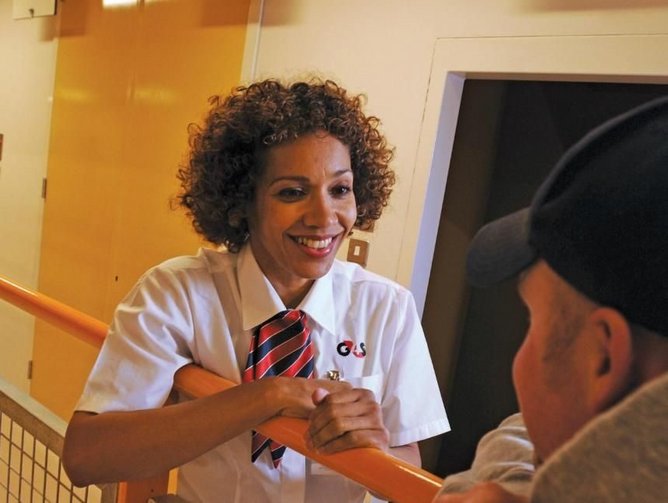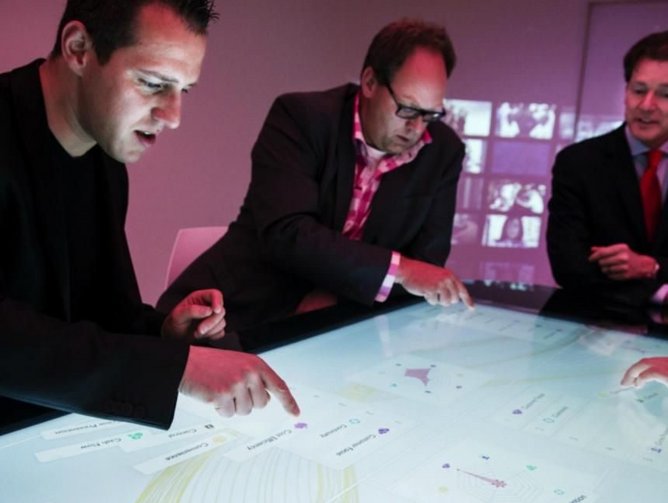When he joined the company in 2014, Group Procurement Director Shaun Carroll faced a seemingly insurmountable challenge: nothing less than developing a group-wide transformation of the company’s procurement operations. Over the past two years, Carroll has brought about a sea-change in the ways that the business handles its procurement at all levels, which includes the adoption of new processes and technologies, as well as a plan to ensure that, in future, G4S has procurement at the centre of its thinking.
Operations
G4S is well-known for its role as one of the world’s leading integrated security companies. Specialising in providing a range of security products, solutions, and services to a variety of sectors, the company operates in 100 countries and employs over 610,000 people.
The procurement arm of G4S fulfils two key functions within the business, which involves operational support, alongside more strategic responsibilities. Operational support is delivered by working closely with a range of different departments which include warehousing, logistics, and supply management, as well as supplier expediting. The company also aims to improve its commercial arrangements with its third-party suppliers; it combines strategic sourcing and procurement in order to achieve this.
“We also look at risk management and supplier relationship management. All of the areas around supplier collaboration and innovation, as well as ethically engaging our suppliers. Bearing in mind, from a procurement perspective, we're like a start-up company here in procurement at G4S - it's just a very, very big start-up,” adds Carroll.
Alongside its range of specialist outsourced services, G4S provides cash management and security solutions, as well as services for both the care and justice sectors. Furthermore, the company also deploys the latest technological solutions across its security systems.
Supply chain management
Carroll gives an insight into the size and complexity of the company’s supporting supply chain, saying: “We've got about a £1.6 billion spend. There are 65,000 suppliers in our supply chain and of that 65,000, the top 250 make up 50 percent of our supply spend. So we have a very long tail of small spend suppliers and that's necessary because of the type of our business and how spread out we are. The top four percent of suppliers cover 80 percent of our spend.”
Having several high-spend suppliers places G4S in a position to form close working relationships – an advantage that has delivered real-world benefits to the business, in this case working with Telefonica (TEF) UK.
Carroll explains: “One of our early successful category programs has been on Telco provision which was first implemented by the Global Category leader in the UK, we open market tested the relationship with Telefonica for the first time in over 5 years. This process came at a particularly hectic time in the relationship as various new agreements were being implemented across a number of regions forging whole new relationships. The UK process was complex and entailed consolidating several smaller relationships and also reviewing the current supply from Telefonica.
“Through clear commercial discussions and value engineering the specification with highly competent internal stakeholders, the Procurement team delivered considerable savings on the UK spend in Telco, improved the resilience and facilitated our move to a cloud based infrastructure. The model for the process has now been rolled out in North America, Europe, Africa and LATAM with Asia following this year. Telefonica have secured several of the contracts around the world.”
Operating across so many countries is complex and challenging, which is why the Procurement team is going to invest a substantial amount of time and effort rolling out a new Enterprise Resource Planning (ERP) system. Not only will this enable the G4S to simplify a great number of individual systems but will bring about a ripple-effect of benefits.
Carroll explains: “There are several improvement projects that come out of implementing a single ERP process. We won't need to engage a third party for our spend visibility programme which we do at the moment. To be able to do that without an ERP, I put in place a spend visibility programme with Spend360 where we went round and gathered the AP data from around 60 finance systems to pull in the data to know what we spend and who we spend it with.
“This was essential to prioritising the workload very early on and our partner Spend360 greatly helped with this programme. So the ERP will give us as close to single element of data truth as we can.”
“Procurement is not just about the price of goods and services delivered – it is also about the total cost of ownership. We have introduced several policies around the business to help us control demand. These cover property, travel, professional services and temporary labour – we are working with several global partners to help deliver the demand management programme, an important one being IQ Navigator who is helping us manage our temporary labour requirements and processes.”
The value of procurement
Carroll explains that the G4S working culture – especially where its procurement operations are concerned – was one of collaboration and mutual respect. It is little wonder, then, that the company has worked hard to ensure that this effective way of working is disseminated as far as possible in the form of its Supplier Code of Conduct.
Carroll says: “Our basic focus is keeping as much of the world as secure and as safe as possible and that brings us into conflict with some pretty difficult individuals. Therefore, our supplier base also gets pulled into those issues. It’s important that we get the message out that respect for the people that we're dealing with when they're in our custody or in our care. Making sure that we do everything with integrity in terms of handling customers’ money, looking after our customers’ premises, transporting our customers’ goods around the world is extremely important to us.”
In order to ensure that these values are ingrained into the procurement ethos – and that operations in this regard are continuously improving – Carroll focused on three core initiatives during his initial months with the company. These consisted of rolling out procurement excellence, implementing a global category focus, led by world-leading industry experts, and by appointing regional procurement leaders.
Carroll explains: “I implemented a small, two person central procurement excellence team. I recruited them from the external marketplace and the value delivered by these roles is to have a consistent backbone of policies and processes around the world. They all have the same look and feel but there are variations depending on the operating environment in different regions.
“Initially, my view was to have true category management led by global experts rolled out into each of the regions to leverage our spend in some key global categories. I recruited a mix of people into five global category roles and they covered our big spend areas.
“We changed our direction in response to the fact that our business struggles to globally consolidate around a single supplier in any category due to the amount of change that that would need, and there are few suppliers that have our geographical spread.
“Where we have managed to consolidate on a single supplier is in our global fuel category, where we have partnered with Shell in all of the regions in which they operate. We took more of a supplier-led reengagement/negotiations/competition programme based around groups of categories.”
“The Regional Procurement teams have developed their integration with local businesses to the point where they are helping business development and sales teams to win new business. Not only are they working on new bids but they are also working with the sales teams to help them understand what procurement folks in their customers want and how those procurement teams think.”
People at the centre of the transformation
When appointing the G4S procurement leaders, Carroll looked at industries that have a recognised reputation for excellence in procurement: “The security services industry is generally not recognised as a forerunner in procurement thought leadership – but manufacturing is, airlines are, and some of the more technology-focused telco organisations are.
“I looked at the business challenges that we have and I looked at the type of industry that has resolve that issue and recruited from that area. Putting good people at the centre of the strategy is vital as they are essential for success.”
Coming from the Post Office in early 2015, Robert Copeland was appointed UK Procurement Director. His skills are based in manufacturing but his operational experience is in this service-led industry which has a similar geographical footprint and service lines as the UK Procurement business. One of Copeland’s first priorities was to build confidence in the new procurement team to allow the market testing of key contracts.
Two of Copeland’s key projects have been the re-procurement of UK fleet where Hitachi Capital were the successful supplier, making a multi-million pound saving over the four year contract. Early on in his tenure, he renegotiated the BT Fleet contract for the company’s cash in transit fleet maintenance, delivering further multimillion pound savings.
Another example of diverse leadership is James Ratcliff, who was appointed from Kimberly Clark. James has held several global and pan-regional procurement leadership roles and brought thought leadership in the process and systems area. Carroll adds: “He was instrumental in developing the policies that the company has rolled out globally and has now taken on additional responsibility in managing the Europe region.
“This demands a clear focus and direction from a procurement perspective because it is highly federated and geographically dispersed. This region has a great deal of opportunity for G4S in terms of supplier consolidation and savings.
“The global team in G4S procurement has come together really well from its beginnings in late 2014 to now, we have a team with diverse, extensive and valuable experience delivering real value locally.”
Seven Key Principles
Carroll and his team are in the second year of their mid-term plan: “We have seven key principles that we're working on in our three to five year plan. The first one is around leadership and organisation and interaction with business leadership. We’ve got our procurement and sourcing strategies where we are developing and executing consistent policies and strategies at a global, local and regional level.
“We have our people strategy which is around attracting, developing and retaining the right talent base. We have got our savings and consolidation process, delivering traceable savings to the P&L. Last year we delivered multi-million-pound savings that were signed off and audited by internal audit.
“The next principle is around process and systems which is why we're rolling out the ERP; another two concern vendor management which is all about the SRM and corporate social responsibility programme. The final principle is based around performance measurement and management; making sure that we measure what we do and report it and that we have a clear set of KPIs to report on.”
Changing focus or adding a new layer of complexity to a business’ operations can be extremely difficult to implement. Given the scale, scope and size of G4S – not to mention the critical security role it plays on a daily basis – this achievement is particularly noteworthy. While security companies are generally not recognised for their procurement achievements, G4S is certainly one to watch.









